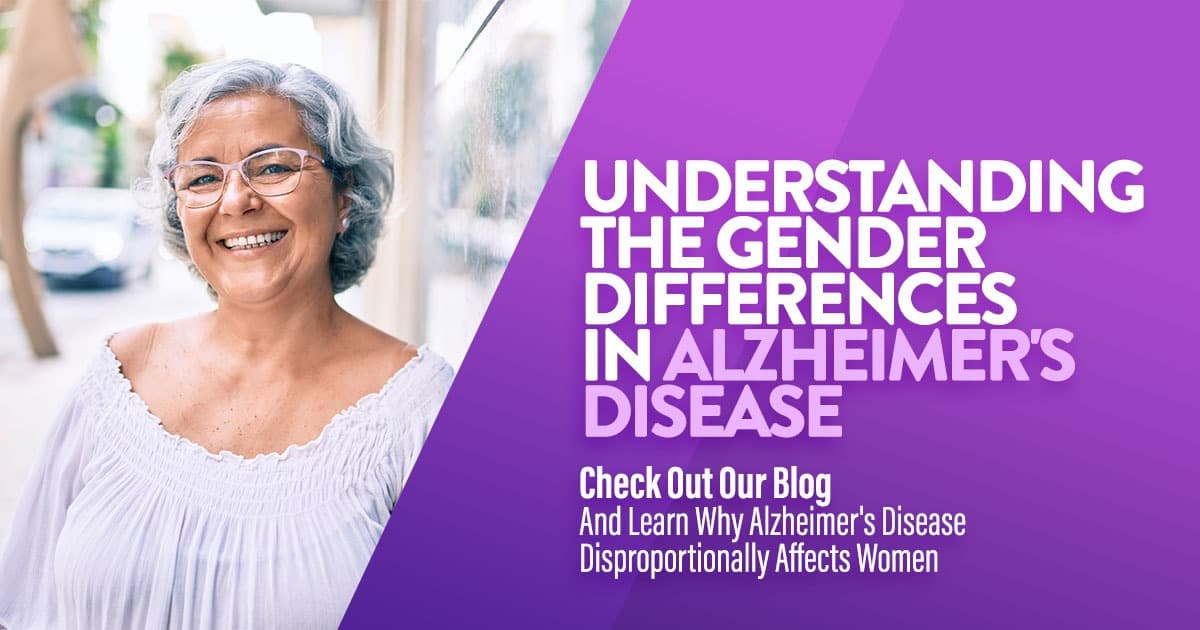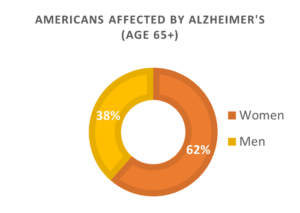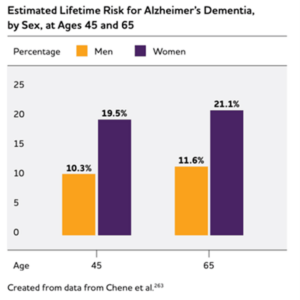According to current figures for 2022, about 6.5 million people in the U.S. over 65 are living with Alzheimer’s disease. Out of these, 6.5 million women are disproportionally affected by this disease, with almost two-thirds of all Alzheimer’s patients being females. Understanding the gender differences in Alzheimer’s disease involves several factors. Keep reading to learn more about them.
Why Does Alzheimer’s Affect Women More?
There are several explanations for the disparity between genders in the number of Alzheimer’s cases. These include:
- Life Expectancy– On average, women tend to live longer than men putting them at higher risk of experiencing dementia. Furthermore, men have higher health risks for some diseases, making them more likely to die before developing dementia.
- Biology – There may be hormonal or chromosomal differences between men and women that could make dementia more likely among women. However, there are still a lot of unknown factors, making this a theory that requires more research and data to understand how biological gender differences can affect the brain entirely.

- Societal and Cultural Factors – There’s been some evidence linking lower education levels to a higher level of dementia. Women, especially those in their 60s now, grew up in more disadvantaged positions when it comes to education versus men. Based on this theory, it makes sense how they could be more susceptible to the risk of dementia. In addition, a recent study showed that women who participated in the paid workforce earlier in life had better cognitive outcomes after age 60. These results further support how societal gender expectations can affect the increased risk of Alzheimer’s in women.
Understanding the Remaining Mysteries of Alzheimer’s
Diseases that affect the mind are some of the least-understood diseases in the medical field. The human mind is largely still a mystery to us, which is why more research in this area has become crucial. Only through greater understanding will it be possible to find ways to treat diseases of the mind like Alzheimer’s. While there is currently no cure for Alzheimer’s disease, research and technological advances have produced medication and treatments to help manage some symptoms of Alzheimer’s. The earlier treatment starts, the better patients respond to treatment and can play a role in current and future care options.

Continuing clinical research efforts remain vital to combat this disease. Clinical trials are highly dependent on participants (healthy or affected by Alzheimer’s) willing to contribute their time and effort to help our researchers understand this disease.
North Georgia Clinical Research is currently conducting Alzheimer’s prevention clinical research studies. To see if you qualify, contact us at (678) 494-5735 or visit our website.
Resources:
https://www.mayoclinic.org/diseases-conditions/alzheimers-disease/symptoms-causes/syc-20350447
https://www.alz.org/blog/alz/february_2016/why_does_alzheimer_s_disease_affect_more_women_tha
https://www.alz.org/blog/alz/february_2016/why_does_alzheimer_s_disease_affect_more_women_tha




